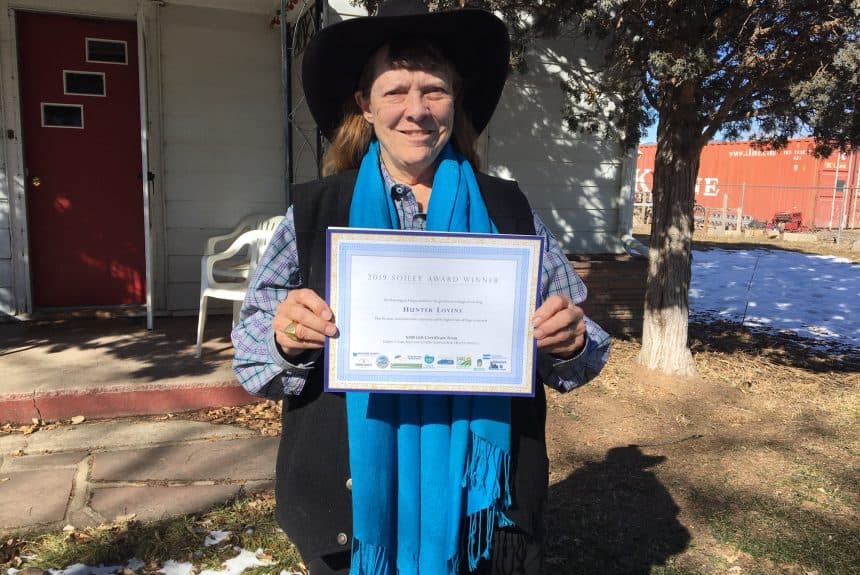Hunter is participating in a group called the Citizen Science Soil Health Project (CSSHP). Led by Elizabeth Black, the 10-year project has enrolled 40 Boulder County farmers and ranchers to evaluate their soil health. The hope is to gather Boulder-specific data on what practices lead to the best soil health, and then provide participants with the knowledge and support needed if they want to implement soil health practices.
Soil fungi are an essential component of soil health. Fungi help in the processes of nutrient cycling, disease suppression, and water availability, all of which are beneficial to plants. Forests with higher amount of soil fungi are more productive. In crops, mycorrhizal fungi attach to plant roots and provide key components like phosphorous, nitrogen, water, and other micronutrients in exchange for carbon from the plant. Fungi play an essential role in decomposing organic matter, which creates degradation-resistant humus and carbon-rich soil. They can even absorb toxic metals like cadmium, mercury, copper, and others.
The CSSHP recently awarded Hunter the Humongous Fungus award. This means that out of all of the soil samples from participants, Hunter’s had “the greatest percentage of soil fungi plus the most varied microbial community and the highest ratio of fungi to bacteria.”
Thanks to the data gathered by the CSSHP, land managers in Boulder County and beyond will gain a better sense of a healthy Front Range soil profile and encourage those who want to transition to soil health practices on their land.
If you want to learn more about the immense potential of fungi, please join us on March 26th, 2020. NCS is hosting a screening of Fantastic Fungi, a groundbreaking new film about the mysterious but powerful world of fungi. Get more details and buy tickets here.



Leave a Reply